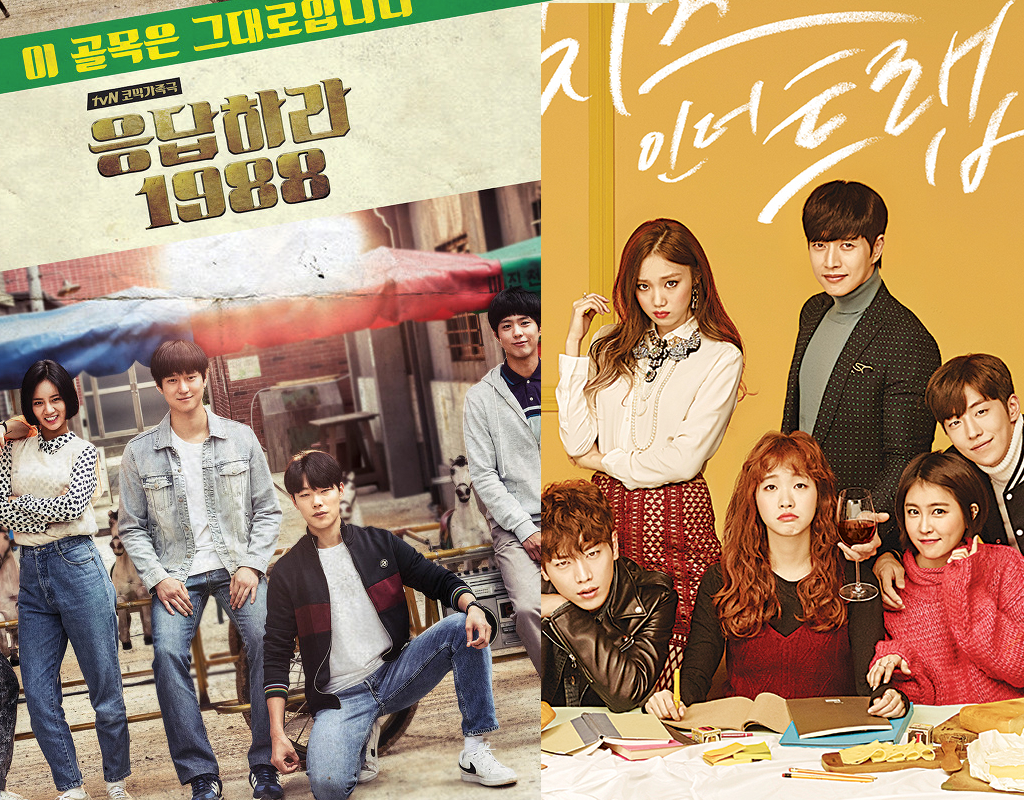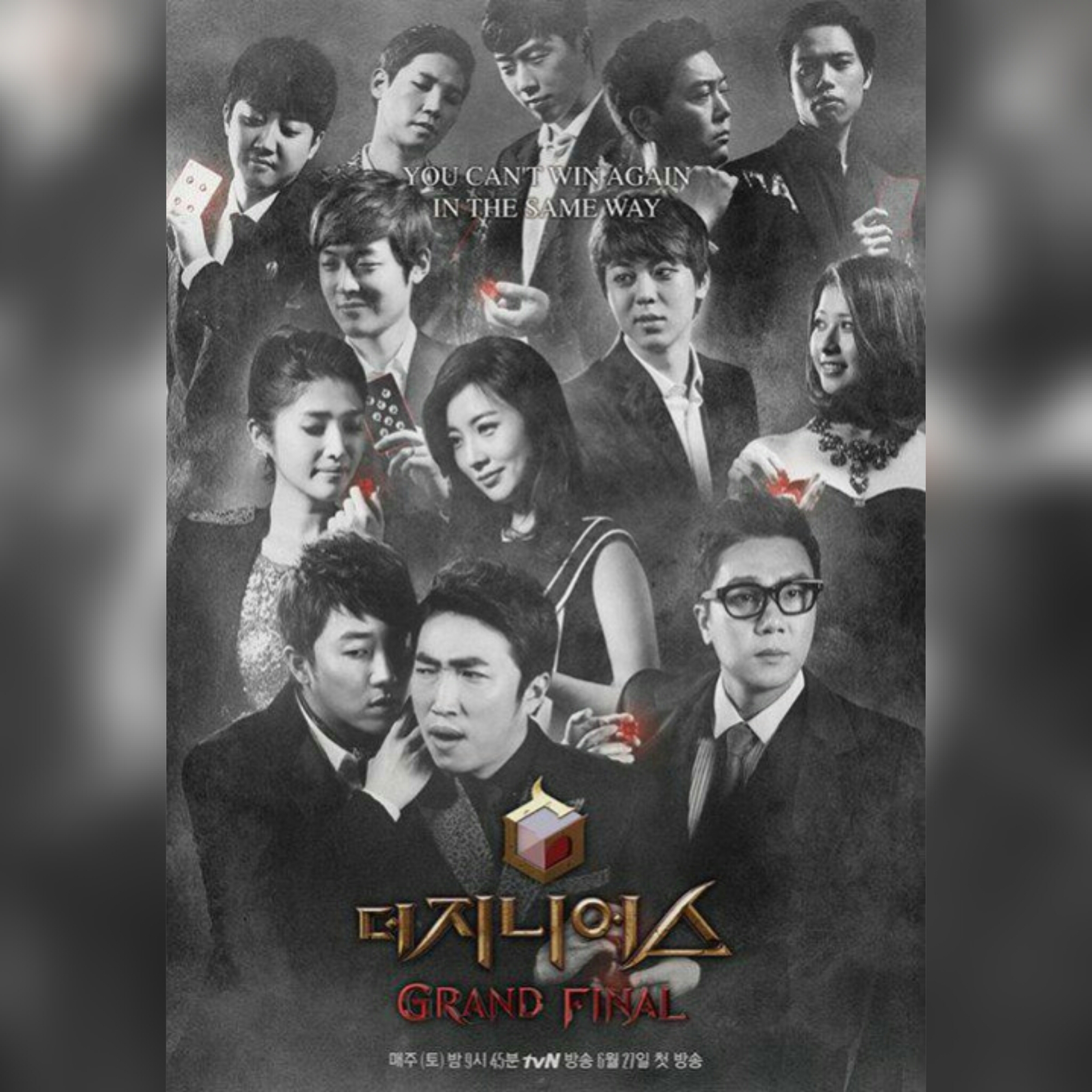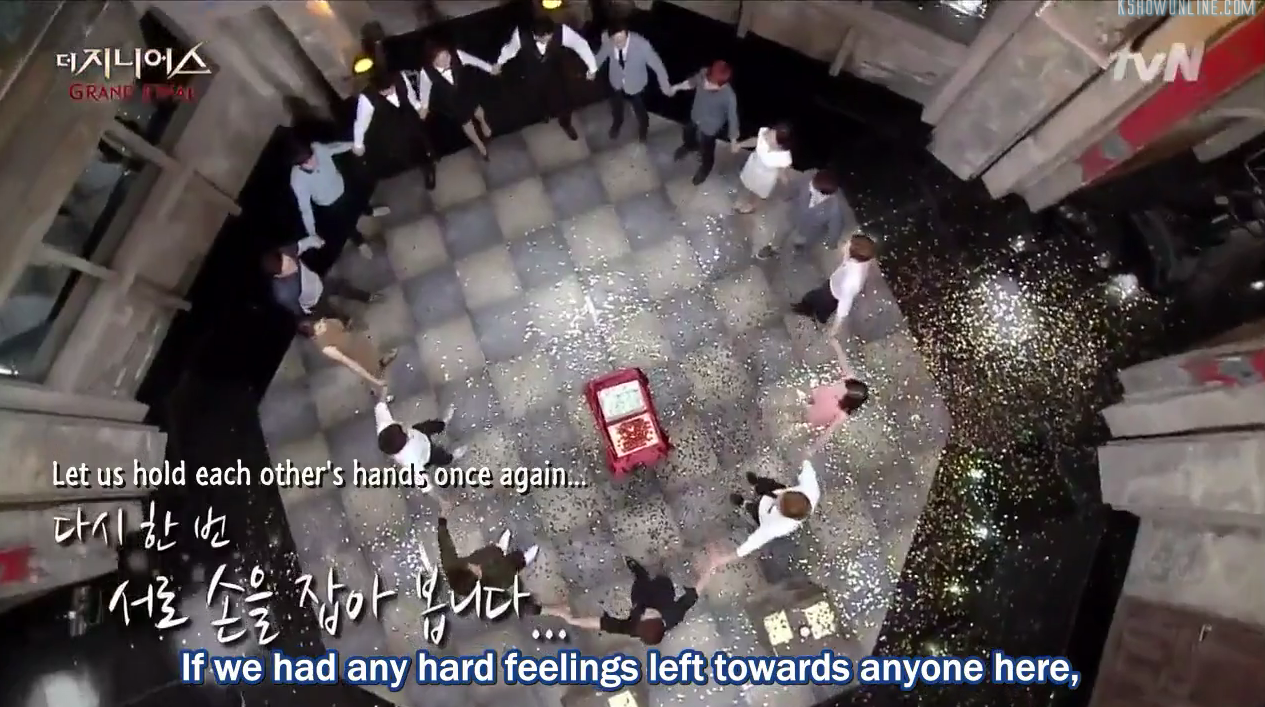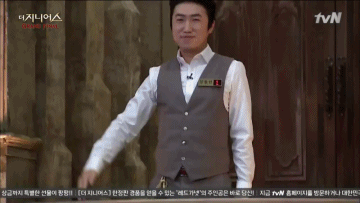4 reasons why you should check out tvN’s ‘Society Game’
The latest brainchild from the creators of the The Genius, Society Game is a brand new tvN reality game show which premiered earlier this month. While the show is designed and edited in a very similar way to The Genius it’s a whole new ball game on its own and is worth checking out, even for non-Genius fans. Here are four reasons why.
The Premise
In this game show, 22 participants have to live together in an outdoor filming set designed to look like a traditional Korean village for two weeks. The set is split into three main areas, “Nop-dong” , “Ma-dong,” and the “Neutral Zone.” Participants are separated into two villages and compete against each other daily, with the losing village eliminating a member. This set-up alone allows for personal interactions between the participants within the villages since they really have to get to know each other and adapt to each other’s living habits. While such hijinks can be humorous and adorable to watch sometimes (martial artists getting scared of live chickens), living together on Society Game can get extremely tense since the participants have so many more opportunities to form alliances or trick each other. The real competition arguably takes place within the villages when each day ends, and this constant tension is what makes the show so unique and fun to watch. The “true” side of each participant is also more likely to be revealed, especially when they are placed under increasing pressure and extreme conditions (the show was filmed during a heatwave and the participants slept outdoors) so this show could be a good watch for fans of shows like Survivor.
Also on Kultscene: What Do You Find At The End Of A Rainbow?
The Participants
Within this relatively large cast, the show’s participants are from different educational backgrounds and have varied occupations, ranging from an English lecturer to university students. This diversity makes for interesting television, since people with different life experiences and even age would naturally have different strategies and opinions. More importantly, they have varied abilities, with some of them being extremely athletic, some who are quick on their feet and others who have great cognitive abilities. These abilities are all valued equally among the participants, especially since the challenges posed to them tend to incorporate elements from all three domains.
There are a few stand-out participants however, who have already made a name for themselves in the show. One of them is mixed martial artist MJ Kim, a 26 year old woman who continually defies gender stereotypes with her physical strength and abilities. With her decisive and hardworking nature, she is shaping up to be one of the strongest participants in the show. Along with her is comedian Yang Sang-gook who successfully led a rebellion in his village within the first episode of the show and has maintained a tight rein over the villagers under his charge ever since. While he might have the manipulative skills required to ensure that he is always in an advantageous position, he also does show genuine care for his villagers. His leadership skills and initiative has won the trust of the people around him so far and with his foresight, he will probably go far in this game.
The Politics
Society Game functions somewhat like a social experiment, not just to observe how strangers live together for two weeks but also to see how successful or disastrous certain government systems can be. In the case of this show, Nop-dong is run as a democracy, with new village leaders being elected daily through a vote. Ma-dong, on the other hand, is run as a totalitarian state. Once elected, the leader will remain in power until another villager completes a rebellion successfully with the support of a majority of the villagers. Both systems have their pros and cons and create vastly different dynamics in the villages. In Nop-dong for instance, with their daily elections, the tide can turn very quickly depending on who is in power. These daily elections can fracture and divide the society so much so that it would be difficult for the village to stay united for long. In Ma-dong however, the divides are more clearly defined and the alliances more permanent, since survival can only be ensured if you are among the majority. It may thus seem more stable on the surface, but will definitely lead to more complicated problems in the future. Society Game therefore gives viewers a very exciting demonstration of these two types of governance, especially when participants of high calibre are involved. Though the show has just begun, the in-depth strategizing of the participants has already caught my attention and I’m excited to see how both villages will turn out.
Also on Kultscene: 5 Reasons Why You Should Watch “The Genius: Grand Final”
The Editing
I expected nothing less coming from the team behind The Genius but I’m glad to report that the editing for Society Game is pretty top-notch. The background music used really sets the atmosphere for the show, whether it’s meant to be humourous or tense and climatic. Interestingly enough, a few less exciting or downright awkward scenes which would have been cut from mainstream variety shows are occasionally added as well. While this sometimes breaks the flow of the episode, they serve to build up the characters of the participants, making them more personal and relatable for the viewers. The use of time-skips and flashbacks in this show has been excellent so far as well, as it creates some truly shocking plot twists and game changers in the episodes.
Society Game premiered off with a strong start and has shown much potential in its run so far, so here’s hoping that its success will last. Check out a preview of the show below!
Have you watched Society Game? What did you think about it? Share your thoughts in the comment section below and be sure to subscribe to the site and follow us on Facebook, Twitter, Instagram, and Tumblr to keep up with all of our posts.






